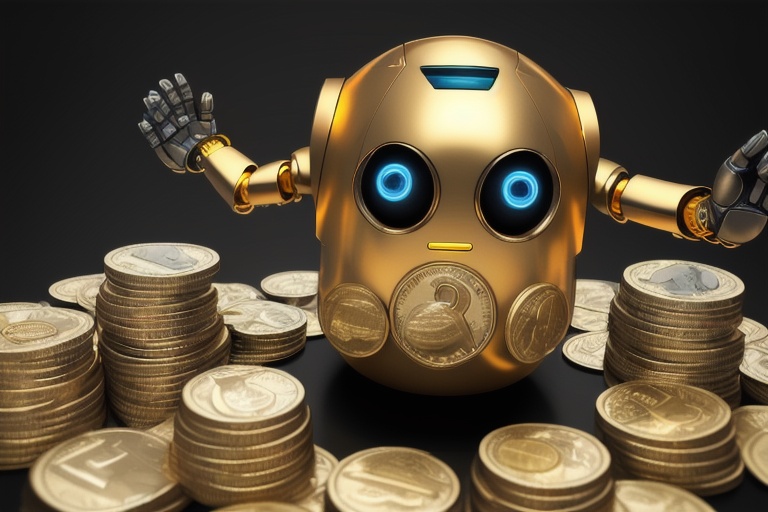Artificial intelligence (AI) and machine learning (ML) are not just buzzwords; they are rapidly evolving technologies that are shaping our modern world. To fully understand their impact and potential, we must delve into the rich history that has paved the way for current innovations and future possibilities. With roots stretching back to ancient history, the journey of AI is a fascinating tale that reveals the relentless human pursuit to create intelligence that mirrors our own.
Artificial intelligence (AI) and machine learning (ML) are not just buzzwords; they are rapidly evolving technologies that are shaping our modern world. To fully understand their impact and potential, we must delve into the rich history that has paved the way for current innovations and future possibilities. With roots stretching back to ancient history, the journey of AI is a fascinating tale that reveals the relentless human pursuit to create intelligence that mirrors our own.
Origins of Artificial Intelligence
Long before the first computer was built, humans have been captivated by the possibility of creating intelligent machines. The ancient Greeks crafted mythical stories about animated statues that hinted at an early fascination with autonomous beings. It was not until the Renaissance period that this concept began to inch toward reality, with creations like Leonardo da Vinci's mechanical knight—an early example of humanity's quest for artificial life.
As the world entered the 20th century, literature, and the media began exploring the concept of artificial humans more earnestly, and visionaries wondered if an artificial brain could ever be created. Early robots, while rudimentary and steam-powered, demonstrated capabilities like facial expressions and basic movement—a step closer to the AI dream. This era of experimentation and curiosity laid the foundation for what was to come.
Laying the Groundwork (1900-1950)
During the first half of the 20th century, several pivotal moments occurred. One significant event was Czech playwright Karel Čapek's introduction of the term "robot" in his 1921 play "Rossum's Universal Robots," which depicted manufactured, artificial people. By 1929, Professor Makoto Nishimura of Japan constructed Gakutensoku, the first Japanese robot, again pushing the boundaries of human imagination. In America, the publication of Edmund Callis Berkley's "Giant Brains, or Machines that Think" in 1949 compared computers to the human brain, presaging the age of AI.
The Birth of AI (1950-1956)
AI's official inception occurred in the 1950s when several key figures made contributions that would define the field. Alan Turing, a British mathematician, proposed the Turing Test as a measure of a machine's ability to exhibit intelligent behavior equivalent to, or indistinguishable from, that of a human. Arthur Samuel developed a checker-playing program that learned from its experiences—a pioneering instance of machine learning. It was during this era that John McCarthy—a name now synonymous with AI—hosted the Dartmouth Workshop and coined the term "artificial intelligence."
AI Maturation (1957-1979)
AI research rocketed during the late 1950s and 1960s, with milestones such as the introduction of LISP (a programming language integral to AI development) and public fascination with AI through films like "2001: A Space Odyssey." The '70s saw further achievements, including the creation of Shakey the robot at Stanford and WABOT-1, a Japanese humanoid robot, albeit funding for AI research faced governmental skepticism.
The AI Surge (1980s and 1990s)
Entering the '80s and '90s, AI experienced a boom that saw the integration of intelligent systems into more practical applications. Computers began to outplay humans in chess, and advances in natural language processing allowed machines to understand and generate human-like text. These developments fueled the vision for AI's role in future societies, opening doors to endless possibilities.
AI Today and Tomorrow
Today, AI has become an integral part of our everyday lives, driving changes in countless sectors from transportation to healthcare. The next generation of AI is poised to unleash even more transformative power, providing solutions to complex problems and enhancing human capabilities. Yet, as we navigate this technological trajectory, the ethical dimensions of AI remain a pressing concern. We must steer this innovation responsibly to harness its benefits while mitigating risks.
AI's journey from philosophical musings to modern marvels is an ongoing saga of human ingenuity. We stand on the cusp of exciting new chapters in AI and ML research. By studying the history and staying informed about the latest trends, we can better appreciate the gravity of AI's role in shaping our collective future.
Information for this article was gathered from the following source.




